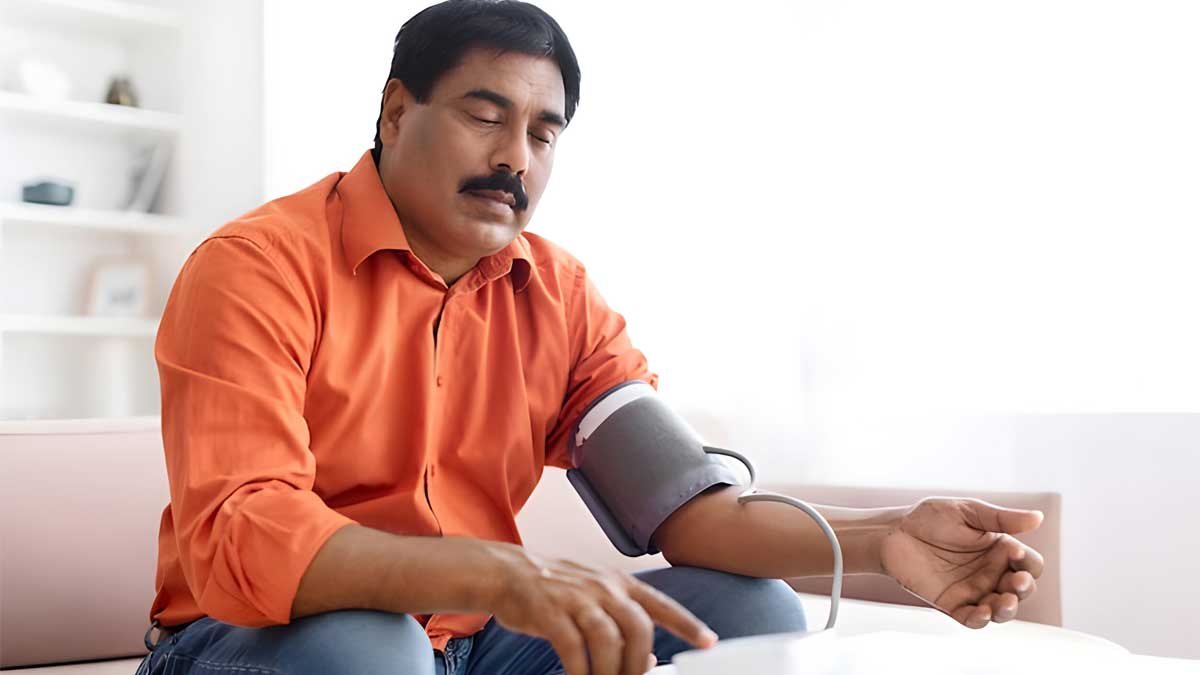
Did you know the effects of pain reach far beyond body discomfort? It can even elevate your blood pressure levels, which can lead to various other health conditions. This is because intense pain causes your body to release stress chemicals like cortisol and adrenaline, which set off a fight-or-flight reaction. As a result, your body experiences an increase in stress levels, which may raise your blood pressure. We spoke to our expert Dr Sunil Kumar Chaudhary, Consultant, Internal Medicine, Fortis Escorts, Okhla Road, New Delhi, who explained the relationship between pain and blood pressure and listed the management tips.
Pain is defined as an unpleasant sensory and emotional experience connected to actual or probable tissue damage, or expressed in terms of such damage, as per the International Association for the Study of Pain (IASP).
Symptoms of Chronic Pain Linked To High Blood Pressure

Chronic pain can be associated with high blood pressure. Dr Chaudhary listed its symptoms as follows:
- Increased Heart Rate: Chronic pain can trigger the release of stress hormones, leading to an elevated heart rate.
- Persistent Headaches: Pain conditions may contribute to frequent or severe headaches, which can impact blood pressure.
- Muscle Tension: Chronic pain often leads to muscle tension, which can affect blood pressure regulation.
- Sleep Disturbances: Pain can interfere with sleep and inadequate sleep is linked to hypertension.
- Stress and Anxiety: Living with chronic pain can contribute to persistent stress and anxiety, both of which can influence blood pressure.
Impact Of Acute Pain On Blood Pressure

Dr Chaudhary explained the impact of acute pain on blood pressure as follows:
- Immediate Spike: Acute pain can cause a sudden increase in blood pressure due to the body's stress response.
- Activation of Sympathetic Nervous System: Pain activates the sympathetic nervous system, releasing adrenaline and other stress hormones that elevate blood pressure.
- Vasoconstriction: Pain can lead to the constriction of blood vessels, raising resistance to blood flow and subsequently increasing blood pressure.
Impact Of Chronic Pain On Blood Pressure

According to a study conducted by The Journal of Clinical Hypertension, it was found that the severity of chronic pain was a significant predictor of hypertensive status, irrespective of age, race, ethnicity, and parental hypertension. Dr Chaudhary explained the impact of chronic pain on blood pressure as follows:
- Continuous Stress Response: Chronic pain often keeps the body in a constant state of stress, leading to prolonged activation of the sympathetic nervous system.
- Inflammation: Chronic pain is often associated with inflammation, which can contribute to vascular dysfunction and hypertension.
- Poor Sleep Quality: Persistent pain can disrupt sleep, and poor sleep is a known factor in the development of high blood pressure.
- Limited Physical Activity: Chronic pain may limit physical activity, contributing to weight gain and further elevating blood pressure.
Tips for Managing Pain and High Blood Pressure
It is important to follow effective pain and blood pressure management strategies to avoid added complications. Here are some tips listed by Dr Chaudhary:
- Pain Management Techniques: Explore non-pharmacological methods, such as physical therapy, acupuncture, or relaxation techniques.
- Regular Exercise: Engage in low-impact exercises, under the guidance of a healthcare professional, to improve overall well-being and reduce pain.
- Stress Reduction: Practice stress-reducing activities, such as meditation, deep breathing, or yoga to manage the impact of chronic pain on blood pressure.
- Healthy Diet: Adopt a diet rich in fruits, vegetables, lean proteins, and whole grains, which can contribute to overall cardiovascular health.
- Medication Management: Consult with a pain specialist to develop a comprehensive pain management plan. If prescribed pain medications, take them as directed by a healthcare professional, and monitor for any side effects on blood pressure.
- Regular Check-ups: Regularly monitor blood pressure and attend follow-up appointments with healthcare providers to address any concerns promptly.
[Disclaimer: This article contains information provided by a registered healthcare practitioner and is for informational purposes only. Hence, we advise you to consult your expert if you notice any complications for an effective treatment.]







